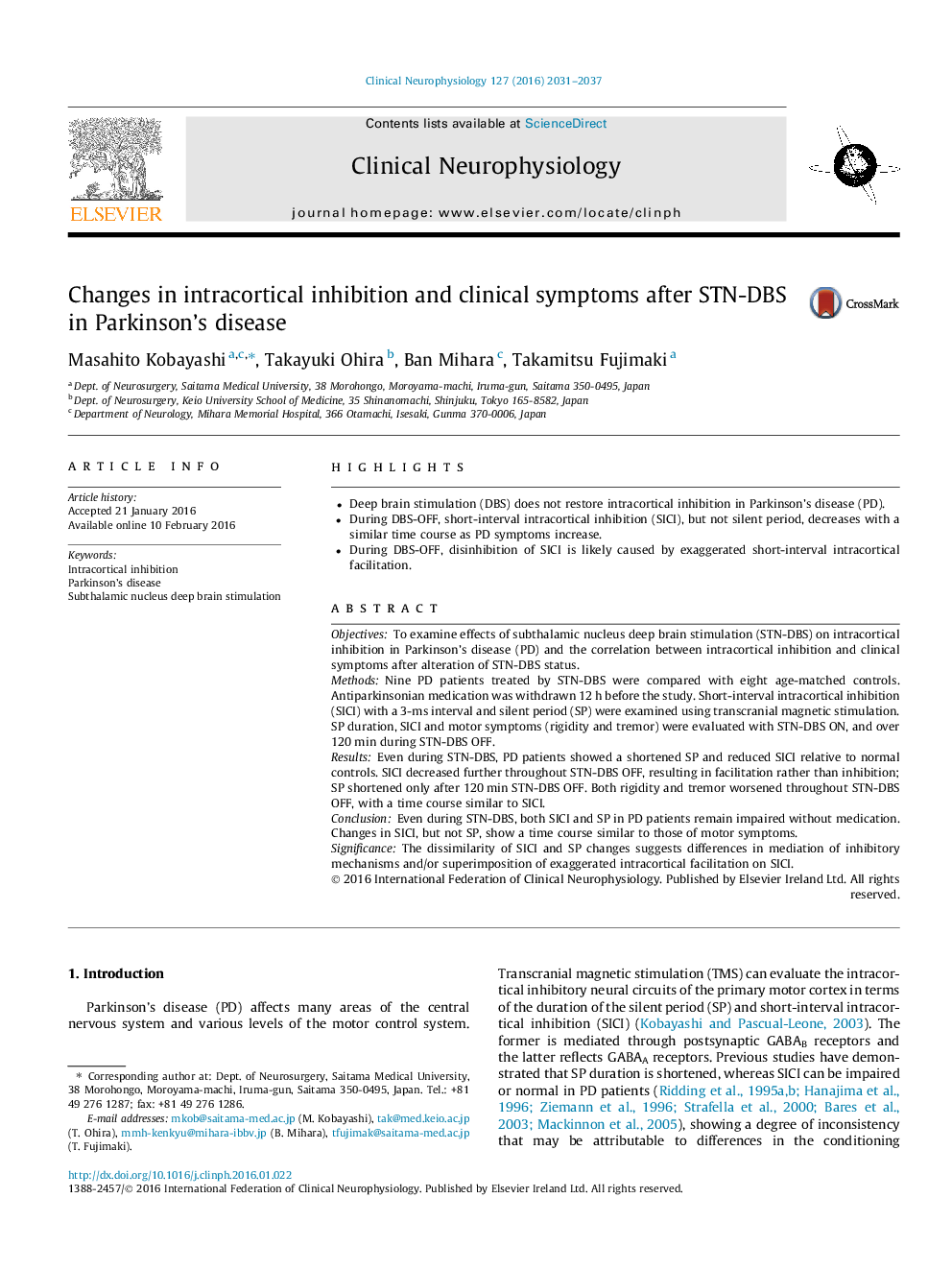| Article ID | Journal | Published Year | Pages | File Type |
|---|---|---|---|---|
| 6008153 | Clinical Neurophysiology | 2016 | 7 Pages |
â¢Deep brain stimulation (DBS) does not restore intracortical inhibition in Parkinson's disease (PD).â¢During DBS-OFF, short-interval intracortical inhibition (SICI), but not silent period, decreases with a similar time course as PD symptoms increase.â¢During DBS-OFF, disinhibition of SICI is likely caused by exaggerated short-interval intracortical facilitation.
ObjectivesTo examine effects of subthalamic nucleus deep brain stimulation (STN-DBS) on intracortical inhibition in Parkinson's disease (PD) and the correlation between intracortical inhibition and clinical symptoms after alteration of STN-DBS status.MethodsNine PD patients treated by STN-DBS were compared with eight age-matched controls. Antiparkinsonian medication was withdrawn 12Â h before the study. Short-interval intracortical inhibition (SICI) with a 3-ms interval and silent period (SP) were examined using transcranial magnetic stimulation. SP duration, SICI and motor symptoms (rigidity and tremor) were evaluated with STN-DBS ON, and over 120Â min during STN-DBS OFF.ResultsEven during STN-DBS, PD patients showed a shortened SP and reduced SICI relative to normal controls. SICI decreased further throughout STN-DBS OFF, resulting in facilitation rather than inhibition; SP shortened only after 120Â min STN-DBS OFF. Both rigidity and tremor worsened throughout STN-DBS OFF, with a time course similar to SICI.ConclusionEven during STN-DBS, both SICI and SP in PD patients remain impaired without medication. Changes in SICI, but not SP, show a time course similar to those of motor symptoms.SignificanceThe dissimilarity of SICI and SP changes suggests differences in mediation of inhibitory mechanisms and/or superimposition of exaggerated intracortical facilitation on SICI.
